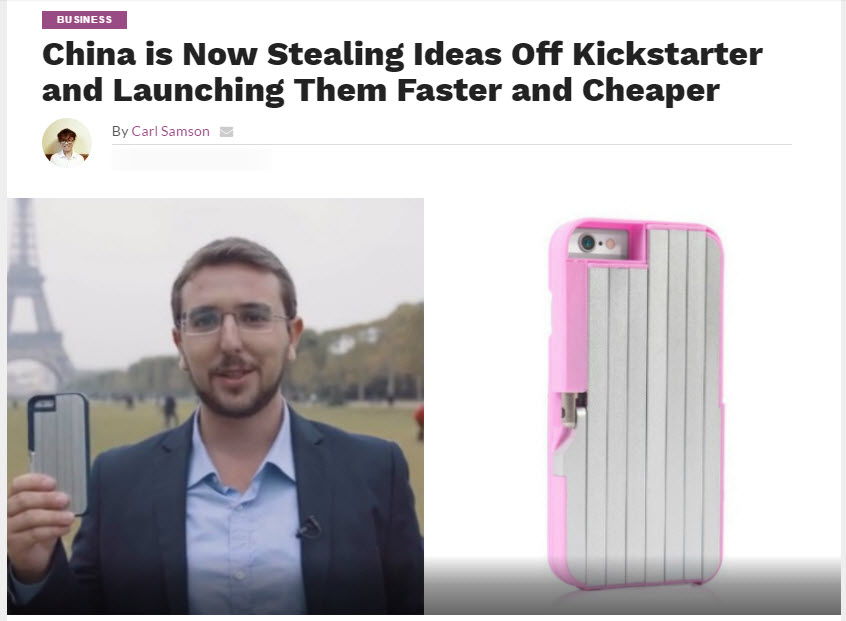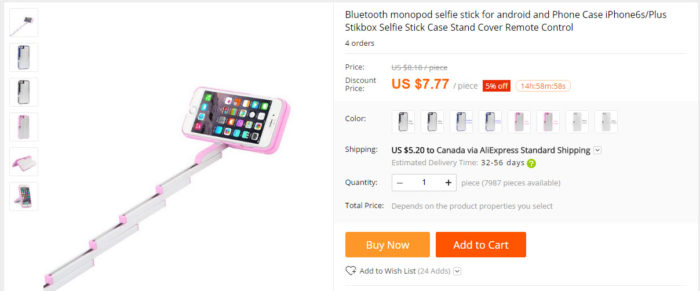Well, isn’t this every innovator’s worst nightmare…
The title of this article on NextShark caught my eye – China is Now Stealing Ideas Off Kickstarter and Launching Them Faster & Cheaper.
I gulped…
The article profiled Israeli entrepreneur, Yekutiel Sherman, who decided to use a Kickstarter campaign to raise money to mass produce a prototype called Stikbox. Stickbox is a smartphone case that transforms into a selfie stick.
Imagine Yekutiel’s surprise when a week after posting his project on Kickstarter, someone directed him to the same product for sale on a site called AliExpress…
It’s sold by a store called ShenZhen Commodity Trade and they call it a Bluetooth Monopod Selfie Stick. And they’re selling it for almost $30 to $40 less than what Yekutiel is asking.
Wow, just wow!
Yekutiel was still able to raise the $30,000 he needed to move Stikbox from prototype to production, but not without many funders asking for a refund.
As Chern Ann Ng stated about the fear of ideas being stolen off Kickstarter:
Ideas don’t get funded on Kickstarter – projects do. There is a big difference between the two. Most Kickstarter projects are like mini-startups and the same rules apply – execution is far more important than ideas, which are a dime a dozen.
So, how can you protect yourself?
If your innovation includes hardware, get the company who will produce your product to sign an agreement before revealing the intellectual property.
According to an article on Quartz:
Entrepreneurs should also sign “NNN agreements” with potential Chinese partners before revealing any intellectual property. This contract prevents partner factories from using the intellectual property themselves after first view (“non-use”), sharing it with others (“non-disclosure”), or inking a partnership and then selling extra units on their own (“non-circumvention”).
But enforcing agreements and trademarks can be tough in countries that have lax enforcement.
That’s why you must innovate more than a product or technology…
In other words, you need to come up with something that makes you stand out. That way, if someone comes up with another product, consumers won’t buy it.
An example are the cords that are sold to recharge iPads and iPhones. If you buy one from Apple, it’ll cost $29 to $39 (depending on the length). There are knock-offs sold through eBay, Amazon and other online retailers for $5-$10.
But the knock-offs often stop working after a few weeks (if they even work at all)…
They have a reputation for being of an inferior quality. So, when my cord frays (and it will), I go to the Apple store. I don’t have time or money to waste buying one of those knock-offs that may or may not work.
As stated in the Quartz article:
It’s not enough to create a product with a groundbreaking design or features, like a smartphone case that turns into a selfie stick. Companies dealing in the creation of physical goods now must make products that are impossible to copy exactly from the get go, by focusing on a special feature they can protect, or creating a coveted brand name consumers will pay more for.






0 Comments